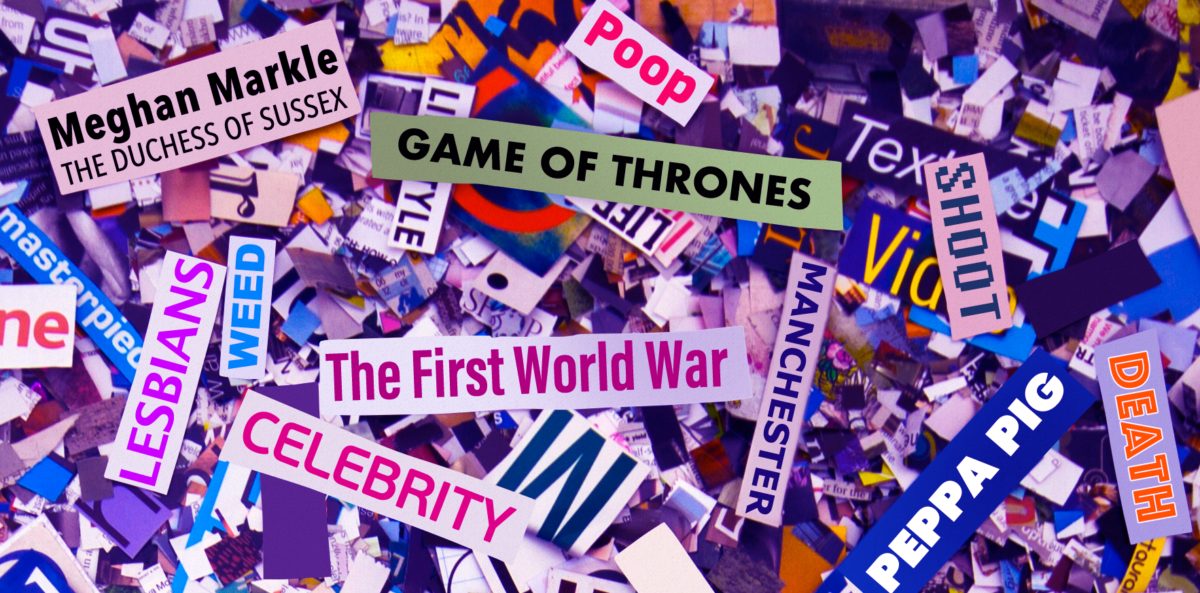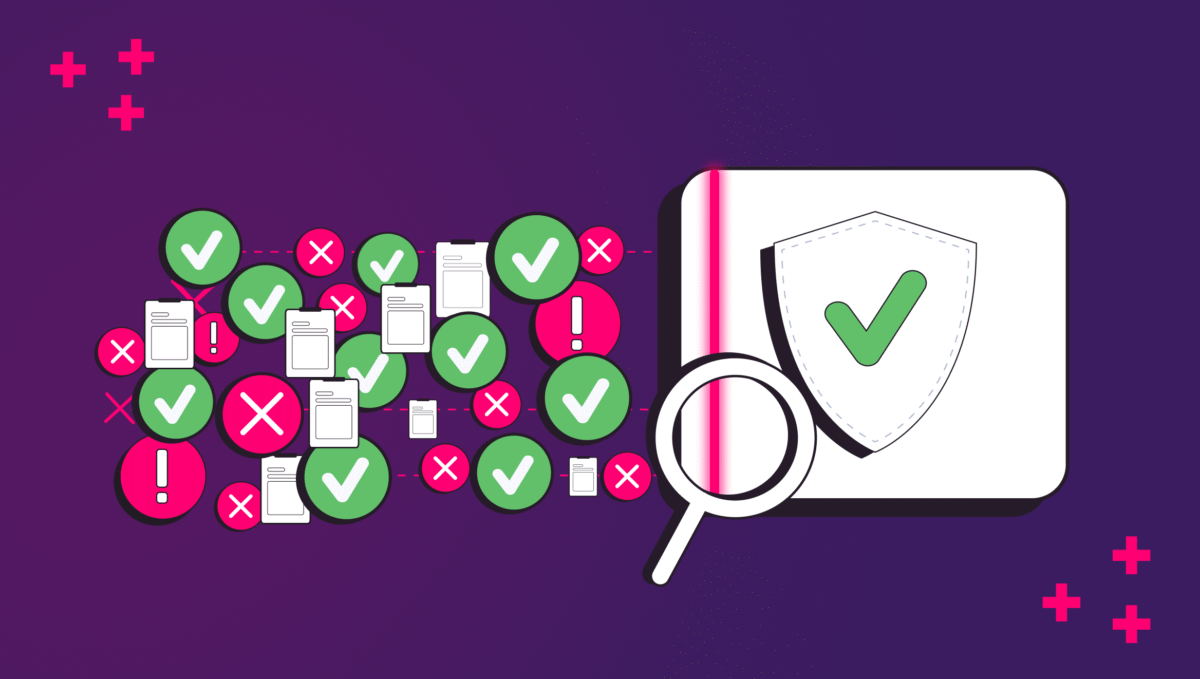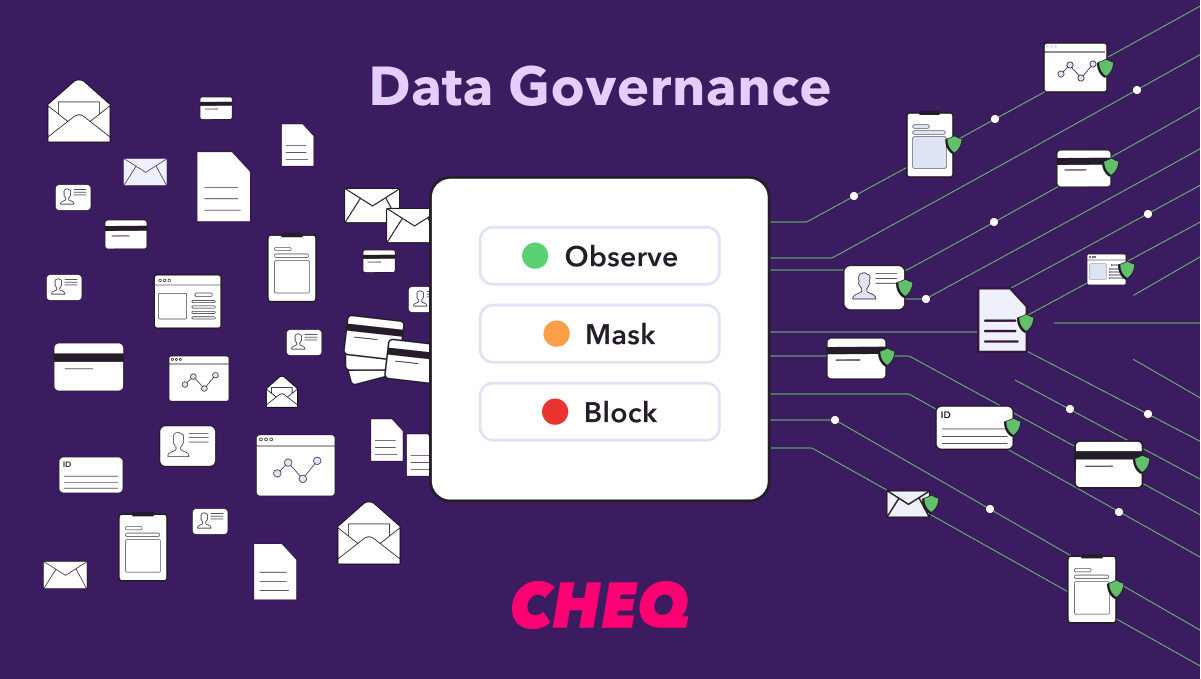12 of the Most Bizarre “Brand Safety” Keywords Costing $3.2 Billion a Year
Jonathan Marciano
|Marketing | February 18, 2020

Top ad leaders on shocking revenue-killing keywords
What do Meghan Markle, Game of Thrones, and Peppa Pig have in common? The answer is that online publishers regularly see top online stories on these topics denied advertising revenue on the grounds of “brand safety”.
The way that brand safety works for online news is bizarre and blunt. It works like this. First-generation ad verification players administer keyword “blacklists”, running into nearly 3000 words packed with “toxic” words. If an online news story contains one of these words, then the concerned advertiser steers clear.
The problem of brand safety blacklists incorrectly penalizing entirely safe content is costing publishers an astounding $3.2 billion in revenue each year. For instance, only 9 of the top 100 news stories by the New York Times in 2019 were deemed brand safe by blacklists. LGBTQ publishers have been forced to close as nearly three-quarters of safe stories are deprived of advertising. Here, top advertisers and publishers reflect on 12 of the most bizarre and damaging keywords killing revenue and reach.
1. Meghan Markle, The Duchess of Sussex
Ryan Buckley, head of programmatic at Hearst, which has 24.3 million unique monthly users across titles like Elle, Esquire, and Cosmopolitan, began vetting the keyword lists and articles blocked from a keyword-based brand-safety vendor. He found that all articles featuring Meghan Markle, the Duchess of “Sussex”, had been blocked across its portfolio for containing the word “sex” . Though the Duchess of Sussex has been shown to double a brand’s turnover, that does not stop keywords from ruling her unsafe.
2. Poop
Paul Wallace, VP of media solutions at Vice Media, recounted how a health article about constipation was filtered for brand safety because the word “poop” was in the headline: “How Many Times A Week Should You Be Pooping?” Defecate would be OK, but poop was a problem according to Wallace.
3. Peppa Pig
Tracy De Groose, the executive chair of Newsworks champions bringing the world’s most lucrative children’s cartoon franchise back into the brand safety fold. She told the Drum. “As odd as it might sound ‘Peppa Pig’ currently sits on a blocklist for a large entertainment brand. And, what this means is that no advertising by said advertising brand can appear next to this much-loved, iconic TV character. It’s hard to tell why Peppa is actually on the list – there has been some suggestion that Peppa has gone all ‘gangsta’ on us.”
4. Lesbians
Meg Runeari, Global SVP of Ad Operations at Teads, was a budding ad operations star, and had recently married her wife, when she encountered the word “lesbian on blacklists. She says: “Not lesbian murder or lesbian selling drugs, but simply lesbian”. Runeari is calling for the use of improved solutions. Benjamin Cohen, CEO of PinkNews says: “From an ad agency perspective, an article on lesbian sexual health is an article about porn”. Lesbian is one of the most common words on blacklists alongside “bisexuals” and “drag queens” and “same sex”. So much so, that three-quarters of brand safe articles on LGBT topics are flagged as “inappropriate” for advertising.
LGBTQ campaigner Jerry Daykin, EMEA media director at pharmaceutical giant GSK, presented the CHEQ findings to the World Federation of Advertisers. He adds: “We’ll continue to see minority voices squeezed out of media if advertisers don’t actively think about how they spend with them. Brand safety measures often actively exclude LGBT audiences with blocked keywords.”
5. Death
Guthrie C. Collin, chief analytics officer at Dow Jones, publisher of The Wall Street Journal, a long-time campaigner against keyword technology for brand safety says: “[The journalists] could write something like, ‘death to the earnings of…’or ‘it’s killing their margin’ and that would be blocked.” In fact “death” is the most incorrectly flagged word by ad verification players. Nearly one in five of all blocks of this word on a daily basis, are blocking perfectly safe content. The keyword for instance appears near the top of nearly all the monthly lists from a well-known verification player, relying on keywords to protect clients.
6. The First World War
Particularly brutalized by keyword blocking are history news sites. Kelly Facer, VP of Revenue Operations, Sightline Media, the world’s largest publisher of military, history and defense news, faces a daily battle because of their constant mentions of Napoleon, JFK, and Churchill. She says: “It sounds absolutely crazy that the First World War is not brand safe but when the technology is just scouring the page for specific words rather than context it becomes challenging. The situation as a whole, hurts the publisher more than it hurts the advertiser.”
7. Manchester
James Wildman, CEO of Hearst UK says that any story they publish of the UK’s third-largest city is constantly blocked from monetization. He says ” [advertisers] haven’t updated their blocklists [since the Manchester Arena bombing in 2017]. We are doing quite a bit of work to shine a light on how crazy it is.”
8. Shoot
Lucinda Southern writing in Digiday, says: “Sports writers invariably use the word “shoot” for scoring a goal, but publishers find this word is often on these lists due to connotations with violence, demonetizing any content featuring it.” It is not only the sports context but stories of filming and striking a pose that is deemed controversial. “We are getting blocked for keywords like ‘shoot’. We write about photoshoots constantly” says James Wildman, chief executive of Hearst UK.
9. Weed
Keith Weed retired as chief marketing and communications officer of Unilever. During a decade in that role, Mr. Weed criticized opaque ad tech and passionately argued for the need to restore accountability and transparency. However “weed”, is among the most blocked words, demonetizing stories mentioning one of the world’s top marketers. This keyword has also demonetized millions of gardening stories (which many had assumed would be the only remaining fertile brand-safe ground for ads to appear).
However, gardening tips are a brand safety turn-off. For instance, publishers rail at the tone-deaf lack of understanding of content (Take this Guardian w-bomb: “Though some weeds should be avoided, others are beautiful and attract bees and butterflies”). The nonsense of a keyword strategy is further highlighted by the fact that if brands truly wished to avoid appearing next to any mention of cannabis, they would have to add to their blacklist 1200 names for marijuana and more than 2,300 names for individual strains.
10. Celebrities
Condé Nast’s head of programmatic and data, Sarah Nagle says: “We had a situation where a buyer had ‘celebrity’ on the block list. With Condé Nast, a lot of our content might have ‘celebrity’ in it. The publisher of Vogue, The New Yorker, GQ, and Vanity Fair is not the only victim. Individual celebrities also get manhandled, such as Tom Cruise, mentioned often in relation to Top Gun, and the upcoming Top Gun: Maverick. “Gun” is one of the most avidly blocked words, according to an ad verification provider that provides a monthly list of their most blocked words.
11. Game of Thrones
Brands raided the Iron Bank to produce tie-ins for The Game of Thrones at the show’s peak. However blunt brand safety meant two-thirds (66%) of the most shared GoT online news articles, including Lad Bible, CNN, The Guardian and The New York Times, were entirely unable to be turned into advertising dollars due to the presence of supposedly brand “unsafe” keywords. Death” saw 11% of articles about Game of Thrones blocked alone, followed by “shot” (not least reports that producers had left a Starbucks coffee “in-shot”); “kill” (7%) and “bastards” (6% – an episode of the show is called The Battle of the Bastards”).
12. Injury
Sports reporting, seemingly among the most popular, safe and non-political areas, is benched by brand safety providers. In particular, “injury” is the second-most incorrectly blocked keyword denying revenue (death is first). Advertising dollars are left out on the field with any mention of sports stars pulling a muscle or facing a fracture. In a recent study, for instance, we found that in a 1700-word story (The Bleacher Report) was rendered unsuitable because of one word (mentioning that an Arkansas Razorbacks player picked up an “ankle injury”).
Find out more about the damaging consequences of using decades-old keyword technology in the recently released, The economic costs of Keyword Blacklists.
The CHEQ Difference
Unlike keyword-first providers, CHEQ in contrast has always been entirely AI-based and understands stories much like a human does, not focusing on random keywords. We have recently launched more than 200 AI categories from finance, to fine art, differentiating between fact and fiction, movie battles and real wars, and loving relationships and porn. Leading brands have found that CHEQ technology achieved 650-times less incorrect overblocking and 253 times higher rate of blocking harmful violations, giving more brand purpose to their brand safety.
To learn more about our brand-safety solution, click here to request a demo.






